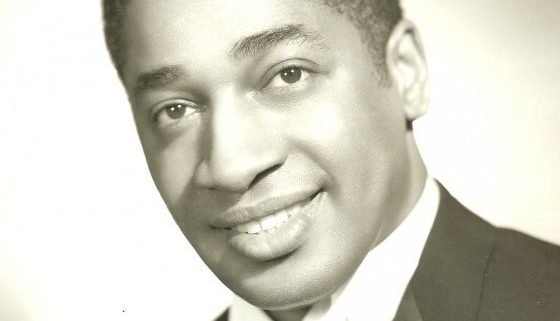Eugene Thamon Simpson: 1977-1979
The third president was Dr. Eugene Thamon Simpson. Educated at Howard, Yale and Columbia Universities. While in the US Army from 1956-59, he formed he Melodaires Quartet that achieved national attention by winning the World Wide Entertainment Competition, appearing on the Ed Sullivan TV Show and touring the world for nine months entertaining troops.
Upon his discharge from Special Services, he taught in the NY High Schools for ten years and worked as a studio singer doing recordings with a plethora of major artists from Harry Belafonte to Leontyne Price. Before coming to New Jersey, he served as Choral Director and Voice Chairman at Virginia State College, and as Professor, Music Chair and Division Head at Bowie State University. He is the recipient of a Tanglewood Vocal Fellowship, a Ford Foundation Academic Administration Fellowship, and served as Chair of the Eastern Regional NASM, Governor of New Jersey NATS, Founder and National Chair of the ACDA Committee on Ethnic Music and Minority Concerns, Founder and Curator of The Hall Johnson Collection, Founder and Endower of the NATS Hall Johnson Spirituals Competition, and a Panelist on the National Endowment for the Arts. His choirs have performed at ACDA Division and National Conventions, at Carnegie Hall, the Mormon Tabernacle, the Vatican, in London, Paris, Vienna, Salzburg, St. Petersburg, Moscow, and Madrid Spain.
When Dr. Simpson came to Glassboro State College as Music Chairman in 1975, the New Jersey ACDA Presidency was vacant and the membership was depleted. As he had been active in ACDA for almost 10 years and had appeared with the Virginia State College Choir at the Southern Division Convention to an enthusiastic standing ovation, he was contacted almost immediately by the ACDA national president and asked if he would fill the vacant presidency and revive the flagging chapter. He accepted the charge and within his two-year term, almost tripled the membership. He established communication with all of the high school and college choral directors; established adjudicated high school and college festivals with quality judges and awards. He developed a newsletter to alert and inform the directors of the festival schedule, of the regulations and procedures, of judging standards, and of the final ratings of each school. The results were instantaneous and enthusiastic. He was able to hand over to his successor a healthy, thriving chapter.
During the same period and in cooperation with the national board of ACDA, Simpson worked to incase the participation of minority choral directors, to familiarize them with international choral standards, and encourage them to accept them for their programs. To this end, he convened a Symposium for Black Choral Directors to discuss the kinds of choral literature that should be taught in accredited schools, adjudication standards, and modern choral techniques. The idea that Black choirs were not chosen because of racial bias was dispelled and the fact of competitive auditions was emphasized. Upon receipt of the report of this Symposium, the national organization demonstrated its good faith by granting his request to constitute a National Committee on Ethnic Music and Minority Concerns to develop a greater appreciation for diverse music literature and to encourage participation by minority conductors. Simpson chaired the national committee for seven years and organized a committee in each ACDA Division.



